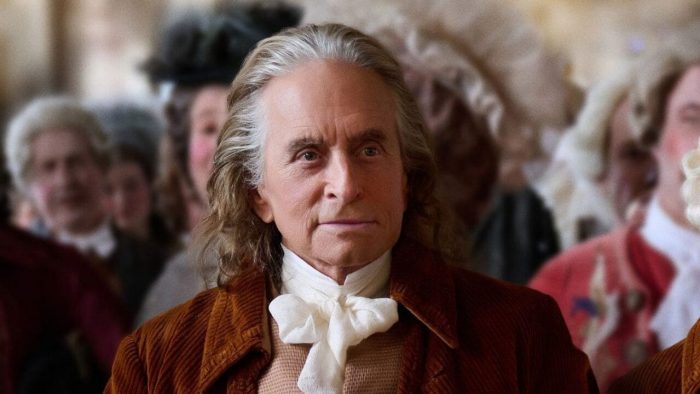Between You and Me: Spies, betrayal and violence were part of Ben Franklin’s world
By Leah S. Dunaief

Publisher
Could the colonists have won the Revolutionary War without the aid of the French? “Franklin” is currently streaming on Apple+ and deals with that question as it also shows that founding father to have been quite human. An eight-episode story, it stars Michael Douglas, and I have watched five installments, starting with Franklin’s landing on the shores of France in December 1776. He did so at great risk, for had he been caught by the British during the voyage, he might have been hanged as one of the signers of the Declaration of Independence. His mission was to get France to supply and join the colonists in their struggle against the British, also enemies of the French.
The plot, with its court intrigue, violence, spies, and photogenic 18th century clothing and luxury, along with both the brilliance and character failings of its polymath hero, make for good entertainment. And I came to wonder what eventually happened to two others who played a role at that time.
One was Temple Franklin, the illegitimate son of Franklin’s own illegitimate son, William, Governor of New Jersey, and Benedict Arnold, who provided the decisive turning point in France’s decision to join with the colonists.
Temple, who accompanied his 70-year-old grandfather, was 17 when they landed and served Franklin as his private secretary, keeping records as the Franco-American Treaty of Alliance was negotiated in 1778 and then the Treaty of Paris in 1782.
Temple became a European, embracing French culture, values and rakish friends. In no way was he able to emulate his grandfather. When he returned to Philadelphia with Franklin in 1785 at the end of the war, he did not fit in. Despite his grandfather’s efforts, he did not receive a diplomatic post, although he hungered to be appointed to the court of France. He returned to Paris in 1796, after a stint in London with his father, and died there penniless in 1823. A friend had to pay for his burial.
As for Benedict Arnold, he was a British military officer (remember, they were all British before the War) who fought with the Continental Army, and was responsible for the critical victory at Saratoga that convinced the French to join the war. He became a major general, and earned Washington’s complete trust when put in charge of the fort at West Point before defecting to the British in 1780. Later in the war, he rose to brigadier general and led the British Army in their fight against some of the men he had formerly commanded.
His name became synonymous with betrayal and treason.
How could that happen? Many historians say, “Cherchez la femme.”
Arnold mingled in Philadelphia with upper class Loyalists, living well beyond his means. Despite his several substantial military contributions to the Revolutionary War effort, he became enchanted with Peggy Shippen, and married into her staunchly Loyalist family. She was good friends with Major John Andre, who became head of British Intelligence. Arnold was offered 20,000 pounds if he surrendered West Point to the British, and Shippen passed messages between the two men.
As we know from our Culper Spy local history, Andre was caught with incriminating papers by American militiamen as he rode north to meet Arnold, who was warned of the capture. He fled across the Hudson and joined the British camp; Andre was hanged.
Arnold subsequently caused much damage in Connecticut, leading troops that burned down New London and slaughtered surrendering forces after the Battle of Groton Heights, just a few miles down river from the town where he was born and grew up.
In 1782, he and Peggy moved to London, where he was well received by King George III and the Tories, given 6000 pounds and an annual pension of 360 pounds, but shunned by the Whigs and most Army officers. He moved to Canada in 1787 to run a merchant business, but was extremely unpopular and returned to London in 1791. He died there ten years later.
Their lives were footnotes in history with two sad tales.







